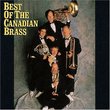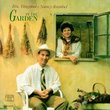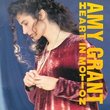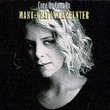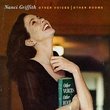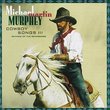| All Artists: Wolfgang Amadeus Mozart, Sir Charles Mackerras, Richard Suart, Scottish Chamber Orchestra, Eric Ruske Title: Mozart: Horn Concerti Members Wishing: 0 Total Copies: 0 Label: Telarc Release Date: 5/24/1994 Genre: Classical Styles: Chamber Music, Forms & Genres, Concertos, Historical Periods, Baroque (c.1600-1750), Classical (c.1770-1830), Instruments, Brass Number of Discs: 1 SwapaCD Credits: 1 UPC: 089408036729 |
Search - Wolfgang Amadeus Mozart, Sir Charles Mackerras, Richard Suart :: Mozart: Horn Concerti
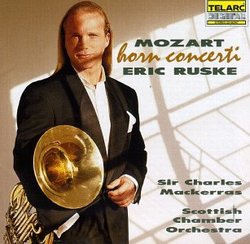 | Wolfgang Amadeus Mozart, Sir Charles Mackerras, Richard Suart Mozart: Horn Concerti Genre: Classical
|
Larger Image |
CD DetailsSimilarly Requested CDs
|
CD ReviewsA No-Brainer 10/15/2000 (5 out of 5 stars) "I was a trumpet player for 37 years, with stint as a horn player. I have been collecting brass recordings since the '50s. I am not a Brainophile, and I was amused that one reviewer refers us to Brain to hear "the best", while another accuses Ruske of copying his style! I view Brain as a "personality boy", meaning that when you listen to him you mainly hear Brain rather than, for example, Mozart. He's a loose cannon in a china shop, if I may mix metaphors. In contrast, Ruske lets Mozart shine through; it's there, you don't have to "interpret" it like, say, Offenbach or Verdi. His very musical and technically accurate playing is very attractive, especially thrilling in K. 447 and 495. I have not heard the Mozart horn pieces played better, and this is the one I'll reach for. The accompaniment is exemplary." This is recording is special. 02/14/2001 (5 out of 5 stars) "I own 25 recordings of these concertos. This is my favorite. Ruske's sound is beautiful and his his technique is beyond reproach. What separates this recording from all the others is his amazing ablility to infuse each note with energy and direction while maintaining a sense of proportion and restraint that is the hallmark of first-class Mozart. His cadenzas are beautiful and original. The reconstructed Concert Rondo, Fragment in E, and the Flanders and Swann track are bonuses you won't find together on any other recording. I'm shocked that some people have chosen to post negative reviews of this. Don't believe them." Fully Centered Joseph Ryan | Islamabad, Pakistan | 12/28/2006 (5 out of 5 stars) "Ruske's Mozart is first-class playing that belongs in any collection.
"Fully centered" refers to Ruske's concept of French horn tone. Tone color, not facility of note production, is what the horn is about. Ruske's Mozart is played on a Stephen Lewis custom horn based on Karl Geyer's models. This places Ruske not only close to his Chicago, Illinois personal origins but squarely in the center of the modern range of horn tone concepts. Besides being in the center of tonal concepts, Ruske's playing also reflects his Chicago roots in staying away from the shimmering effects that are more common among soloists in Europe and among at least some of the big-horn players. Without that injection of live spirit into the tone, however, the centrist sound can sound dead or slightly nasal. Ruske often seems tempted to combat this by swelling longer notes once he has hold of them, but this solution of the need to "do something" doesn't work out as well to my ears as a delicate vibrato. In the end, his tone is best when the passage is in motion. His interpretation of the scores is a young man's, with quick tempos in virtually all the movements, a consistent scooping of long upward slurs, and a judicious bit of hot-dogging here and there -- nicely done at the very end of the third concerto, for example. Don't miss the wonderful cadenza in the Concert Rondo! Ruske seems indifferent to leaving the occasionally imperfection in the recordings as released, and bravo for that!! Every run-through is different and (almost) none are perfect -- something the public should be aware of. Players of Ruske's stature should perhaps think of releasing two contrasting versions of the Mozart pieces, just to show us some of the options. To end where I started: first-class playing that belongs in any collection. " |

 Track Listings (14) - Disc #1
Track Listings (14) - Disc #1

